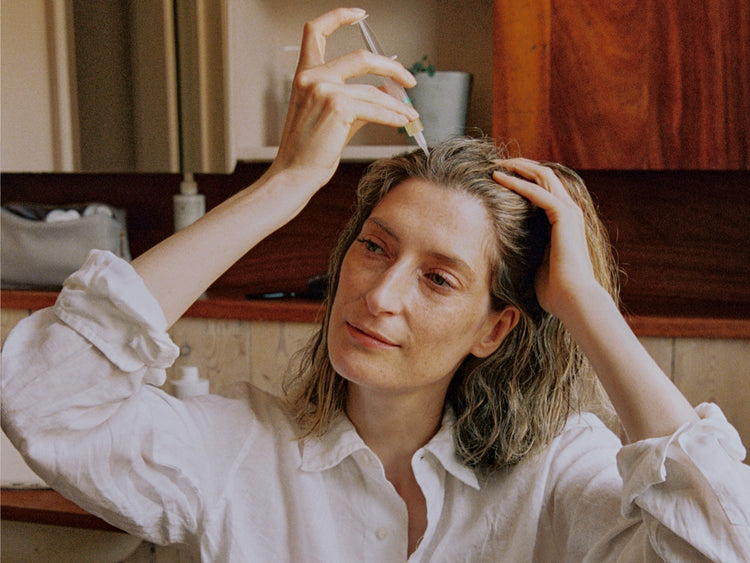In general, cisgender men are more likely to experience hair loss. Many factors – from genetics to stress and vitamin deficiencies – affect all genders, but hair loss is more common in individuals who have higher levels of testosterone and dihydrotestosterone. That means around 66% of men will experience noticeable hair loss by the time they reach 35 years old, and around 80% by 50 years old. Figuring out the cause is the integral first step to selecting the right treatment.
Genetics and Cisgender Men
While people of all genders experience androgenetic alopecia (often called male or female pattern hair loss and male or female pattern balding), it’s more common in cisgender men. The condition occurs because of genetics and an increase in the dihydrotestosterone hormone, causing hair follicles to miniaturise. Men often notice it manifesting as a receding hairline or loss around the crown.
Stress
Stress doesn’t discriminate against any gender. Your body’s anatomical hierarchy activates when experiencing physical, mental or emotional stress; devoting resources to essential functions – for example, healing from a surgery or injury. This means hair growth becomes a low priority for the body, sometimes leading to telogen effluvium, which disrupts the hair’s normal life cycle. This causes less hair to be in the growing phase and more in the resting and shedding phases. This type of hair loss usually occurs two to three months after the triggering event and manifests as hair loss and thinning all over the scalp. Once the stress alleviates, the hair growth cycle typically returns to normal.
Ageing in Cisgender Men
Just like stress, ageing is unavoidable. It’s uncommon to have the same hair at 50 (or even 30) that you had as a teenager. Typically for men, aging means a significant decrease in testosterone production which leads to hair follicles on the head shrinking in diameter, causing strands to become thinner and more delicate – ultimately resulting in breakage and loss.
Medical Conditions and Certain Medications
Excessive hair shedding in men can be a symptom of an underlying medical condition or signal that you might have some kind of health issue. Common conditions related to hair loss include lupus, syphilis, thyroid disorders like hypothyroidism or hyperthyroidism, and various autoimmune diseases. Other concerns like fungal scalp infections, scarring alopecia and alopecia areata can cause hair loss that can be temporary or permanent. Along with many medical conditions, various medications and treatments can create issues for the scalp and hair, such as some drugs for acne and high blood pressure. Blood thinners, beta-blockers, steroids, retinoids, and chemotherapy can also be culprits. As always, it’s important to figure out the cause of your concern before finding the right treatment.
Unbalanced Nutrition and Vitamin Deficiencies
The skin on your scalp, like the skin everywhere else on your body, requires sufficient nutrients to function at its best. Unbalanced nutrition can have a significant impact on the scalp and your hair. Certain deficiencies – like protein, iron, riboflavin, biotin, folate and vitamin B12 – can lead to excessive shedding. It’s important for overall health and in achieving stronger hair to ensure the right intake of calories, minerals, essential fatty acids, and vitamins.
Poor Scalp Health
The scalp is a delicate ecosystem and is home to millions of microbes that impact hair density, strength, volume and vibrancy. Men often produce more sebum, which – along with sweat, dead skin cells and product – can accumulate on the scalp, clogging and damaging hair follicles. This often occurs because of infrequent or suboptimal cleansing. Additionally, certain styling products often marketed to men can cause breakage, while also creating irritation and inflammation of the scalp. Having extra hot showers can also leave the scalp dry and inflamed. Finding the right scalp care routine for you is paramount for hair health – and hair gain.
If you’re concerned about hair shedding or thinning, book an in-person consultation with one of our Hair Specialists to find out if the Hårklinikken Method will work for you.








